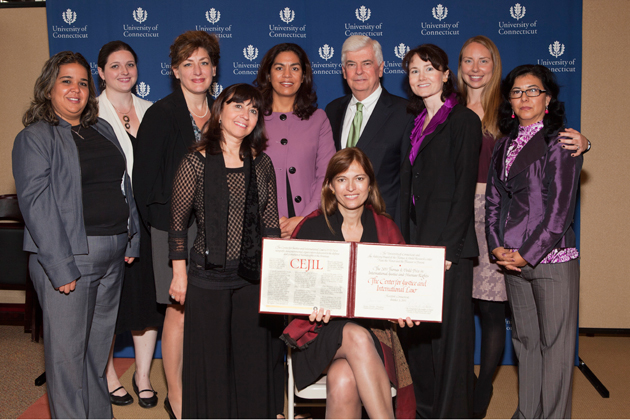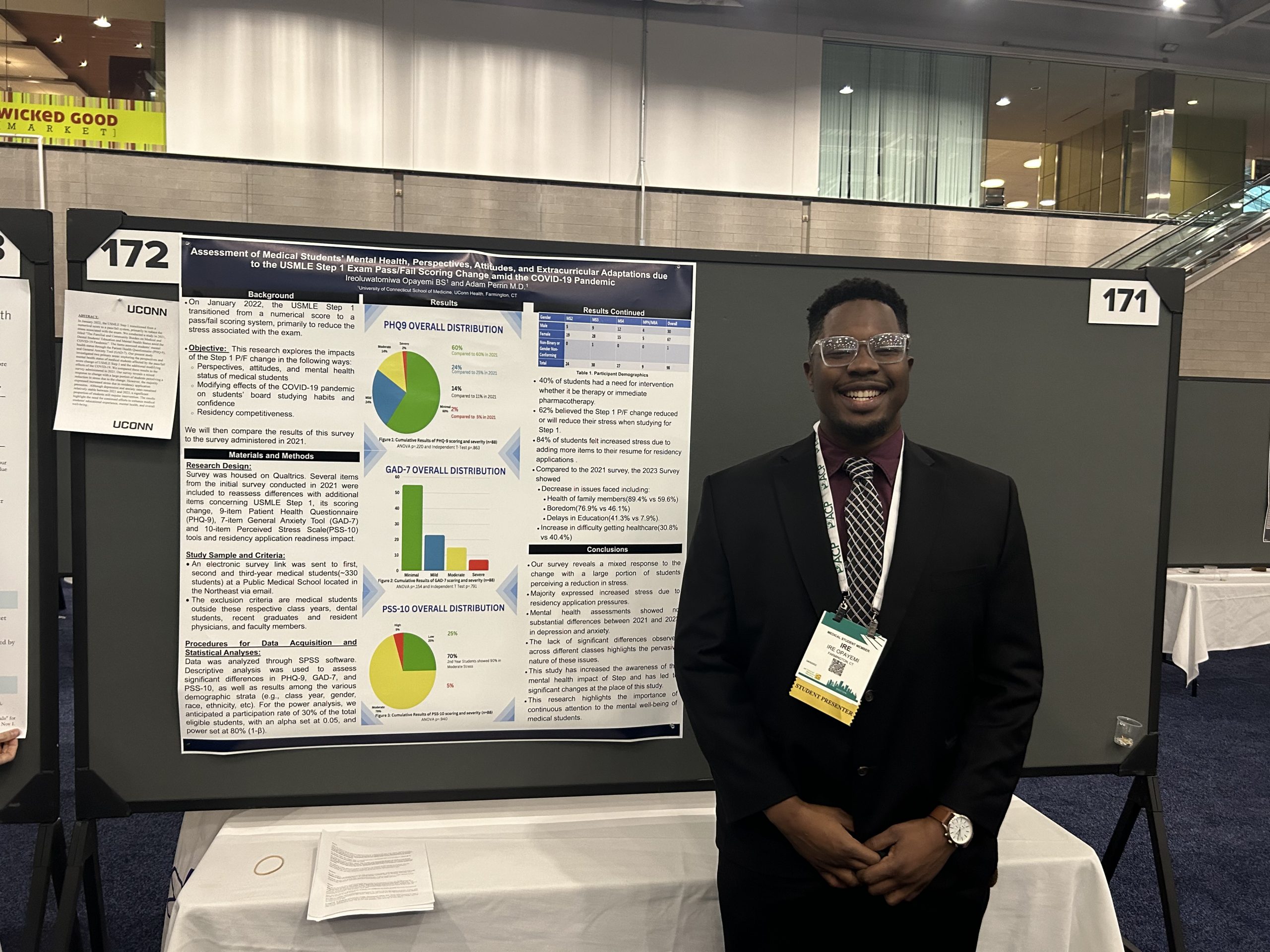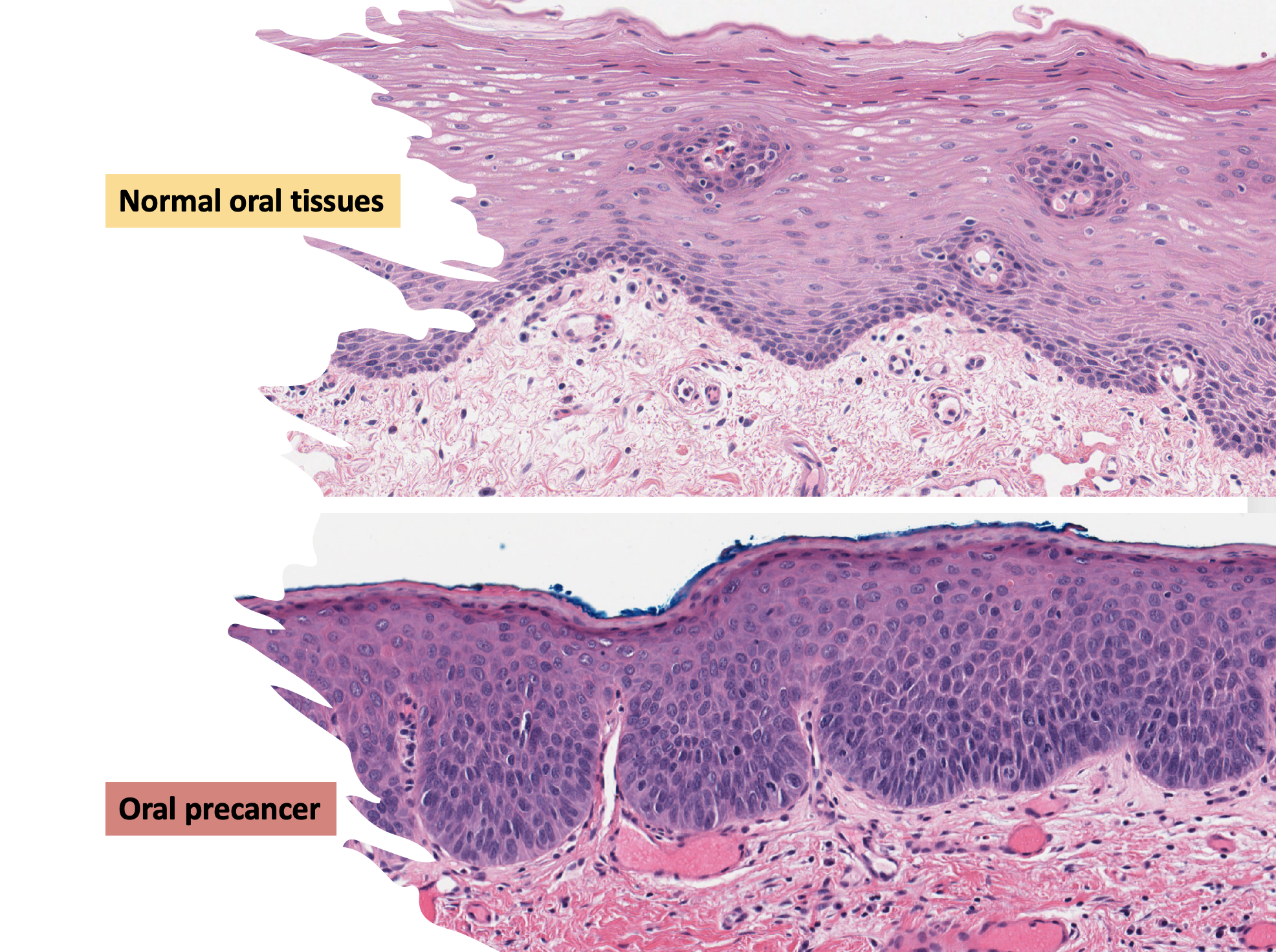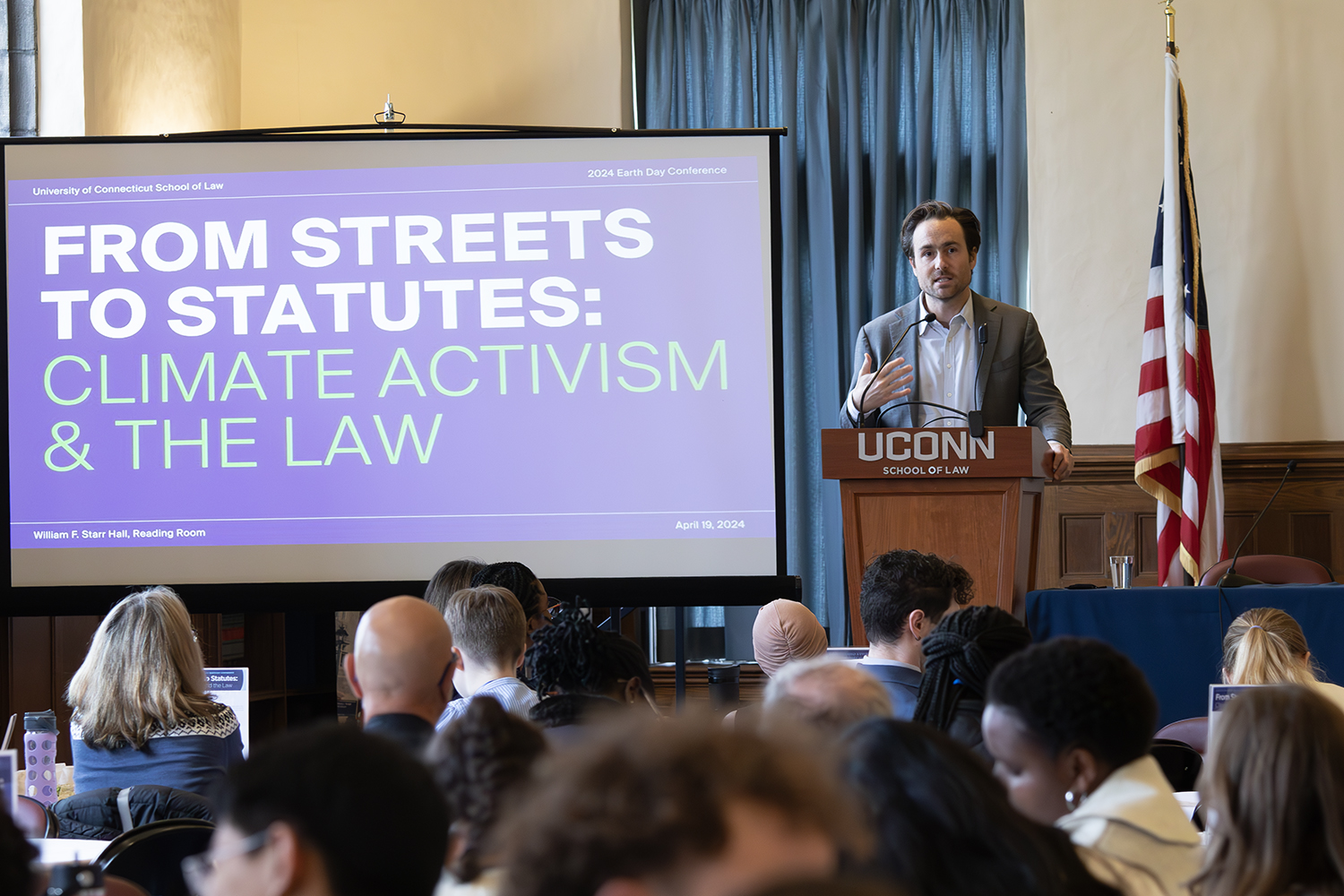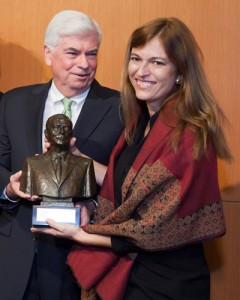
The Center for Justice and International Law (CEJIL), a nonprofit, nongovernmental organization dedicated to the defense and promotion of human rights in the Americas, was awarded the Thomas J. Dodd Prize in International Justice and Human Rights on Oct. 3 at the UConn Law School in Hartford.
The award was presented by former U.S. Senator Christopher Dodd and was accepted by Viviana Krsticevic, CEJIL’s executive director.
The Dodd Prize, awarded biennially by the University of Connecticut, recognizes individuals or groups who have made significant efforts to advance the cause of international justice and global human rights.
CEJIL, which celebrates its 20th anniversary this year, utilizes strategic litigation and engages in advocacy efforts before the Inter-American System of Human Rights (IAS) to address the most pressing human rights issues, such as gender violence, forced disappearances, torture, and indigenous land rights.
Dodd, who was joined by members of his family at the event, is the son of the prize’s namesake, the late U.S. Senator and Nuremberg prosecutor of Nazi war crimes, Thomas J. Dodd Sr.
“My father’s life was defined and shaped by the pursuit of justice,” said Christopher Dodd, who was introduced by UConn President Susan Herbst. “He would be very proud to have his name associated with CEJIL.”
Dodd noted that while speaking out on behalf of human rights causes is vital to advancing them, “it is equally important, in my view, to address the cause of justice and the rule of law.”
CEJIL litigates emblematic cases, many of which lead to systemic change at the state level and serve as precedents for the region. Two examples of this include the cases of Maria da Penha v. Brazil and Victor Hugo Maciel v. Paraguay, as IAS decisions led to the creation of legislation regarding gender violence in the former and the revision of legislation regarding the recruitment of child soldiers in the latter.
Krsticevic told the audience that the work of CEJIL “stands as the legacy of the Nuremberg Trials.”
In her remarks, she recalled the case of Gisela Ortiz Perea, sister of a student at the Enrique Guzman y Valle National University, better known as “La Cantuta,” in Peru’s capital Lima, who, along with eight other students and a professor, was kidnapped, tortured, and murdered by troops of the Peruvian Army in 1992. Ortiz Perea was pivotal in the prosecution and conviction of Peru’s former President Alberto Fujimori for his responsibility in the crime and other extrajudicial murders. A lawsuit involving the La Cantuta disappearances was brought by CEJIL lawyers before the Inter-American Court of Human Rights on behalf of Ortiz Perea and other family members of the victims.
“The sitting president was part of the killing machine,” said Krsticevic, adding that the case “is a shining example of the importance of the Inter-American system.”
CEJIL has offices in Washington, D.C.; San Jose, Costa Rica; Rio de Janeiro, Brazil; and Buenos Aires, Argentina, and 300 partners throughout the region. In the past five years, the organization has litigated more than 250 cases before the IAS, representing more than 13,000 victims and securing U.S. $40 million in reparations. Over the years, CEJIL has emerged as one of the leading organizations working to defend and promote human rights in the hemisphere.
“With this prize, we are reminded that we have friends in unexpected places,” said Krsticevic. “This award provides us with the encouragement to continue to fight for justice and equality.”
Samuel Martinez, an associate professor of anthropology, nominated CEJIL for the Dodd Prize. Martinez provided an expert affidavit before the Inter-American Court of Human Rights in 2005. He has seen the benefits of CEJIL’s work through his own fieldwork on the rights struggles of people of Haitian ancestry in the Dominican Republic. The prize is awarded by a committee.
Concluding her remarks, Krsticevic discussed the drive behind the organization’s work, which is never finished, recalling the words of an Argentinean poet writing about a Utopia. The poet said that when he took three steps toward a Utopian existence, it seemed to take three steps back. And when he took 10 steps toward it, it took 10 steps away, always seemingly out of reach. But, he noted, even if he never arrived there, at least he was always advancing.
“And so,” said Krsticevic, “the purpose of this commitment is a way to make us all advance.”
